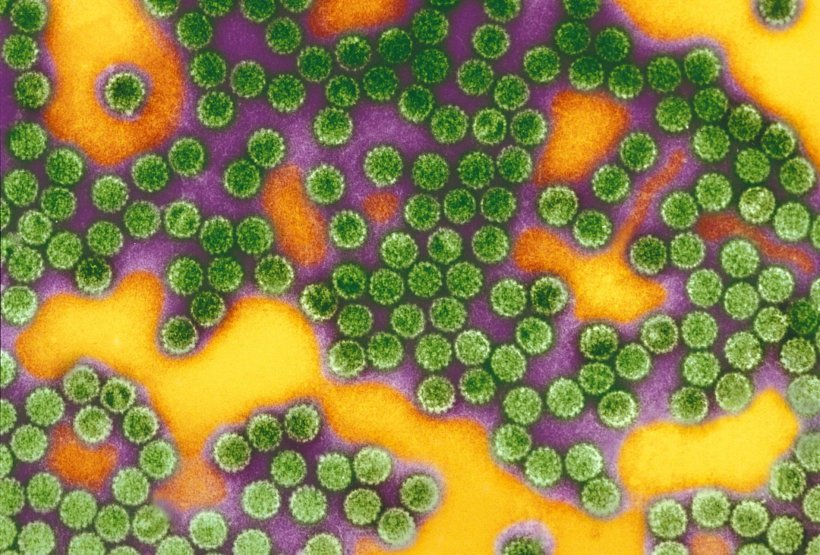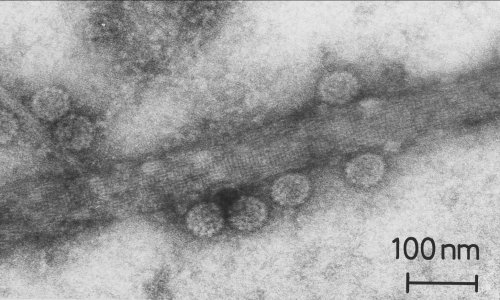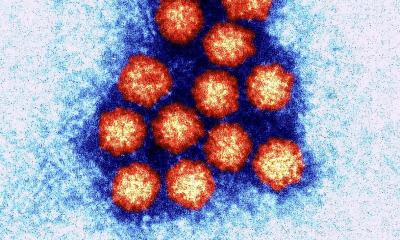
© Institut Pasteur/Odile Croissant
News • Lentiviral vector-based approach
HPV-induced cancers: new vaccine candidate shows promise
Biotech company TheraVectys, in collaboration with Institut Pasteur-TheraVectys Joint Laboratory, has just demonstrated the preclinical efficacy of its "Lenti-HPV-07" lentiviral vector-based vaccine candidate, administered intramuscularly, against cervical and oropharyngeal cancers induced by human papillomavirus (HPV).
These results were published in EMBO Molecular Medicine journal.
"Our vaccine candidate induces a 100% tumor eradication in our preclinical model and a long-term memory immune response that prevents the risk of tumor relapse. This technological advance enables us to expect a major clinical benefit in the treatment of HPV cancer, and offers very promising prospects for other tumor indications. These results are far superior to those obtained in the same pre-clinical model by other vaccine technologies, notably mRNA," said Pierre Charneau, CSO of TheraVectys and head of the Institut Pasteur-Theravectys Joint Laboratory.
HPV causes almost all cervical cancers, as well as many oropharyngeal and anogenital cancers. The currently available HPV vaccines essentially induce HPV-neutralizing antibodies, and thus prevent infection, but have no effect on established tumors.
Using the non-integrative lentiviral vector vaccine platform, the Institut Pasteur-TheraVectys Joint Laboratory has developed an onco-therapeutic HPV vaccine candidate capable of inducing strong cellular responses against the "Early" E6 and E7 antigens of HPV16 and HPV18. Its efficacy in the preclinical animal model has led TheraVectys to set up a Phase I/II clinical trial in humans, to be conducted in early 2024 at the Moffitt Cancer Institute in Florida, USA, on patients with cervical or oropharyngeal cancers.
A single intramuscular administration of Lenti-HPV-07 to mice bearing small, medium or large HPV-induced tumors triggers a long-term effector and memory cellular immune response, notably based on anti-tumor cytotoxic CD8+ T cells, accompanied by profound modulation of the tumor microenvironment, total tumor eradication and complete elimination of metastases in 100% of animals. Importantly, a single administration of Lenti-HPV-07 also prevents long-term tumor relapse.
On the other hand, in a recent study, the immunotherapeutic potential of mRNA technology could only be demonstrated against very small HPV-induced tumors, with early relapse in almost 50% of treated animals (Ramos da Silva et al, 2023). Conversely, in the preclinical study conducted by the Institut Pasteur - TheraVectys Joint Laboratory, Lenti-HPV-07 immune therapy was active on large tumors, which are notoriously more difficult to control, demonstrating the far superior efficacy of this vaccine platform.
In addition, Lenti-HPV-07 oncotherapy can act synergistically with other immunotherapies, such as treatments with immune checkpoint inhibitors like anti-PD1 (Programmed cell Death protein-1) antibodies. Therefore, Lenti-HPV-07 therapy is emerging as a promising immuno-oncotherapy for HPVinduced tumors.
Source: Institut Pasteur
21.09.2023











